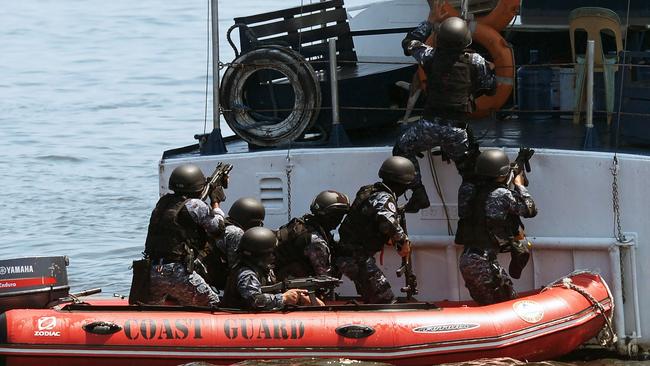Fishing folk up for a bit of action from The Philippines’ Duterte
News of Manila’s legal victory over Beijing this week was greeted in Infanta with a euphoria reserved for sport.

After three years of suffering under a China-imposed exile from the Scarborough Shoal fishing grounds that once sustained their communities, news of Manila’s legal victory over Beijing this week was greeted in Infanta with a euphoria usually reserved for great sporting triumphs.
“People were gathered around radios and television sets waiting for the news,” said Luis Madarang, a municipal councillor in the fishing hamlet on the edge of the West Philippines Sea and 200km from the triangular collection of reefs and rocks famed for its fishing grounds.
“When the announcement was made, we all shouted and clapped our hands. Some were hugging, crying. Many made the sign of the cross and thanked God.”
That could all be a bit premature given Beijing’s sabre rattling in the wake of the Permanent Court of Arbitration’s ruling on Tuesday in The Hague that there was no legal basis for China’s claim to historic rights over some 90 per cent of the South China Sea, and its resources.
China vowed to ignore that finding and on Wednesday threatened to impose an air defence zone over the area, asserting its military authority over foreign aircraft and significantly raising the prospect of confrontation in one of the world’s busiest and most valuable shipping lanes.
The Philippines responded yesterday by urging Beijing to respect Tuesday’s ruling, and said Foreign Minister Perfecto Yasay would raise the issue this weekend at the Asia-Europe summit in Mongolia. The summit will also be attended by representatives from Vietnam and Malaysia, also in dispute with China over its claims to waters and land formations that fall within their respective exclusive economic zones. Both have welcomed this week’s judgment.
But The Philippines’ new government has been markedly circumspect in its response.
President Rodrigo Duterte has made no official comment since the ruling and Mr Yasay has called for “all those concerned to exercise restraint and sobriety”.
The new administration has made no secret of its preference for profitable negotiation with Beijing — flagging possible joint access to resource-rich areas of the sea in exchange for significant Chinese infrastructure investment — over conflict.
Former president Benigno Aquino launched Manila’s challenge in 2013, after a tense standoff between The Philippines and Chinese coastguards at the Scarborough Shoal.
The Philippines backed off and China seized control.
Armed Chinese coastguards have patrolled it ever since, using water cannons and the threat of force to keep Filipino fishermen away. The Chinese have also been accused of cutting anchor cables, putting Filipino boats at risk of running aground, according to fishermen at Infanta and Masinloc, a neighbouring fishing town.
Macario Forones ran a thriving fishing business in Masinloc but has since laid off 80 workers and sold his fleet of boats.
He kept on just three men to maintain a single dry-docked boat in the hope the ruling will reopen the shoal, but the Chinese are showing no signs of backing down.
Only once, and in days leading up to The Philippines’ presidential election in early May, did the Chinese coastguard allow Filipino fishermen back to the shoal.
Mr Madarang said everyone was surprised, and very eager to go back and fish at Scarborough, but the weather was against them.
Notwithstanding their victory, and the jubilation it sparked, he is not so naive as to believe anything will change immediately.
“But what the decision did was lift our spirits and give us hope, assure us that we are on the right side,” he said.
“We were saddened by China’s reaction to our victory, but we had expected it.
“We have high hopes that our new president will do something about this situation soon. He seems to be a man of action and conviction.
“All we can do is pray, hope and wait.”



